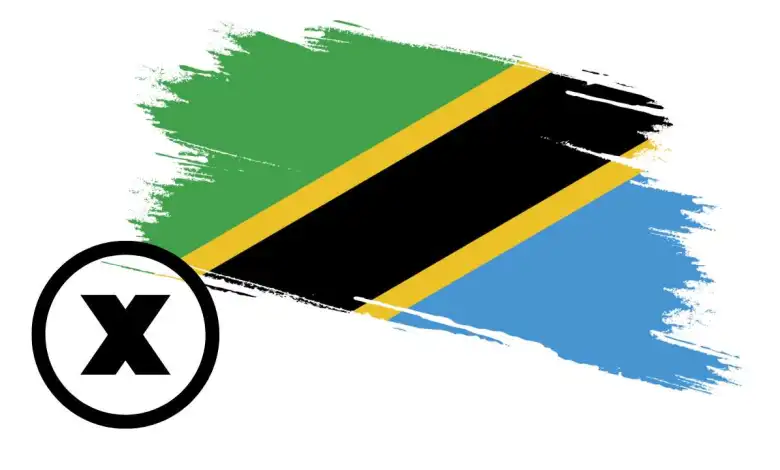The East African nation of Tanzania has taken a dramatic step by blocking access to the social media platform X (formerly known as Twitter). The outage, which occurred on Saturday, was confirmed by Netblocks, an internet observatory organization that monitors global connectivity. Netblocks posted on its X handle, stating:
“Live metrics show that X (formerly Twitter) has been restricted on #Tanzania‘s main internet providers; the incident comes as the police force issues an alert over alleged opposition party plans to raid police stations where political prisoners might be held.”
Political Tensions Rise with Arrest of Opposition Leaders
The government’s decision to restrict access to X coincides with heightened political tensions in Tanzania. Authorities recently arrested prominent opposition politician Tundu Lissu, along with four other officials from the Chadema party, the country’s main opposition group. The arrests occurred in Mbeya, just before a scheduled World Youth Day rally. Among those detained were Chadema’s chairman and the head of its youth wing, both taken into custody a day after Lissu’s arrest.
The arrests have sparked widespread concern and outrage, particularly given Tanzania’s complex political landscape. Tundu Lissu, a key figure in Tanzania’s opposition, has long been a vocal critic of the government. His arrest, alongside other Chadema officials, has intensified fears of a crackdown on political dissent.

Allegations of Protest Organization Through Zoom
Adding to the tension, the Tanzanian police force (TANPOL) has issued warnings against members of Chadema, alleging that the opposition is using Zoom to organize protests. According to TANPOL, these Zoom meetings are purportedly being used to coordinate small groups of 20 people to raid government offices and police stations in an attempt to free political prisoners. The police have framed these actions as a significant threat to public order, justifying their stringent measures.
Tanzanians Express Frustration Through VPNs
READ ALSO: X Faces Potential Shutdown in Brazil Amid Escalating Legal Battle
Editor’s Choice
Despite the government’s efforts to control the narrative by blocking X, many Tanzanians have found ways to voice their frustrations. Citizens have turned to Virtual Private Networks (VPNs) to bypass the restrictions and access X, where they continue to express their discontent with the government’s actions. The use of VPNs has become increasingly common in Tanzania, particularly as the government has previously considered introducing a mandatory license for VPN usage—a move that was widely criticized as an infringement on digital rights.
Internet Shutdowns as a Political Tool
The restriction of X in Tanzania is part of a broader trend where governments use internet shutdowns or partial restrictions as tools to suppress dissent and control information flow. These tactics are becoming increasingly prevalent across Africa and other parts of the world. In July, several mobile networks in Kenya, including Safaricom, allegedly shut down the internet for a few hours, coinciding with political protests. Similarly, Senegal experienced a significant internet shutdown earlier this year when youths took to the streets to protest against the government. In Bangladesh, social media platforms were restricted for days during student-led protests that eventually led to a change in government.
Implications for Free Speech and Political Freedom
The situation in Tanzania raises serious concerns about the state of free speech and political freedom in the country. The blocking of X, especially in the context of political unrest, highlights the challenges faced by opposition parties and civil society in their efforts to express dissent and hold the government accountable. As Tanzania navigates this period of political instability, the international community will likely be watching closely to see how these developments unfold and what they mean for the future of democracy in the country.




